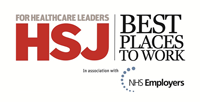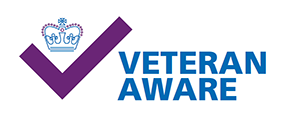Patient Information Leaflets - P
Welcome to the Patient Information Leaflets section
To search for a leaflet, please use the search facility on this page.
Please note if you have any questions or queries relating to the leaflets, please contact the telephone number which appears on the leaflet.
Disclaimer
The information leaflets on this internet site are intended to advise and benefit patients who intend to use, or are using, the clinical services provided by St Helens and Knowsley Teaching Hospitals NHS Trust.
The Trust does not accept responsibility for using the information contained in the leaflets for any other purpose than that described within them.
If you are concerned about your clinical condition you should seek qualified medical advice from your GP or the relevant clinical team at the hospital.
- Paediatric-Children's
Title - Attention Deficit Hyperactivity Disorder (ADHD) diagnosis and treatment in St Helens
Description - ADHD is a real and a life-long diagnosis that follows children and young people into adulthood. If a child/young person (CYP) is being assessed for ADHD, they might not get a diagnosis. Many CYP have behaviour that presents as hyperactive, impulsive or inattentive but they do not meet the specific criteria for a diagnosis.Title - Blood Allergy Test: IgE & RAST
Description - Blood allergy tests highlight ‘sensitivity’.Title - Eczema Care Plan
Description - An eczema care plan for use by patients.Title - Hospital Food Challenge
Description - A food challenge is a test that is carried out in hospital to see if your child is allergic to or able to tolerate a particular food. The specialist at the hospital will have already discussed the reason why your child should undertake a food challenge. The aim of this leaflet is to give you an explanation of what to expect on the day your child attends for a food challenge with the allergy team at Whiston Hospital.Title - Information for families of newly diagnosed cystic fibrosis patients
Description - This leaflet is to provide you with some information on the service we provide and a list of contact details for the Cystic Fibrosis Team. This leaflet is to provide you with some information on the service we provide and a list of contact details for the Cystic Fibrosis Team.Title - Information Leaflet for Children & Young People Newly Diagnosed with Type 1 Diabetes
Description - Type 1 diabetes is when the body stops producing insulin, causing your glucose levels to rise. The exact cause of type 1 diabetes is unknown but there is nothing you could have done to prevent it. The treatment is to replace the insulin and this can be done via injections or an insulin pump. Glucose levels need to be monitored and this can be done by doing finger prick blood tests or by using a continuous glucose monitor (CGM). Monitoring and managing your glucose levels are very important to help you to reduce your risk of short and long term diabetes related complications. These can be prevented by keeping glucose levels within the targets below.Title - Inhaler devices
Description - How to use your inhaler devices.Title - MRSA - Methicillin Resistant Staphylococcus Aureus
Description - MRSA is not a stronger or more infectious type of bacteria than others. It is only different because the standard antibiotic medicines do not work against it. This means that non-standard antibiotic medicines are needed to treat the infection.Title - Neonatal Abstinence (Withdrawal) Syndrome (NAS)
Description - If a woman uses drugs/medication (either prescribed by a doctor or unprescribed) during pregnancy, particularly during last trimester, her baby can have drug withdrawal symptoms after birth. This condition is described as Neonatal Abstinence Syndrome, or NAS for short. NAS happens because the baby becomes dependent on the drug during the pregnancy. - PALS
Title - Carers Passport
Description - Carer Passport for families and friends looking after someone. If you are staying with a patient to provide carer support whilst they are in hospital we will arrange for you to have a Carers Passport. This will give you additional support to care for your relative, partner, friend and enable you to access a variety of concessions. - Pathology
- Pharmacy
Title - How to use THORENS (colecalciferol) liquid
Description - How to use THORENS (colecalciferol) liquidTitle - Pharmacy Medicines Helpline
Description - The helpline is open Monday to Friday 8:30am until 5:00pm - Plastic Surgery
Title - Advice and Exercises after Breast Reconstruction with a SGAP/IGAP Flap
Description - You are having to reconstruct your breast. Some of the skin and soft tissue from your gluteal region (bottom) along with the underlying blood vessels is used to construct the shape of your breast. Following the operation it is very important that you do not perform activities that stretch the area that the flap has been taken from until the surgery has healed.Title - Advice and Exercises after Breast Reconstruction with a Latissimus Dorsi Flap
Description - You are having surgery to reconstruct your breast. Part of one of the muscles on your back, latissimus dorsi, along with the overlying skin and blood vessels, is used to reconstruct the shape of the breast. You may also have an implant or a tissue expander placed under the muscle on the chest wall.Title - Advice and Exercises after Breast Reconstruction with a TUG Flap
Description - You are having to reconstruct your breast. Some of the skin and soft tissue from your inner thigh (transverse upper gracilis muscle) along with the underlying blood vessels is used to construct the shape of your breast.Title - Advice on Splint Wear and Care
Description - Precautions, cleaning, wearing instructions and timescales.Title - Complementary Therapies Provision on Wards 3A and 4D Whiston Hospital
Description - As the name implies, these therapies are designed to complement and be used alongside the normal medical treatments. All complementary therapies are ‘complementary’ to a patient’s treatment and care and not a replacement for conventional treatment.Title - Discharge advice for nasal surgery patients
Description - Discharge advice for patients post surgeryTitle - Eye Care in facial palsy
Description - Our eyes need to be kept moist to stay healthy. This requires enough tears to be produced and the ability to blink to spread the tears across the eyeball like windscreen wipers. The facial nerve tells the eyes to blink and close. It is also responsible for tear production (via the lacrimal gland). People with facial palsy can experience issues with dry, irritable eyes if the affected eye no longer blinks or closes properly and / or insufficient tears are made. Sometimes both eyes are affected. Weakness of the muscle that closes the eye can also lead to the lower eyelid drooping, making it harder to keep tears or eye drops on the eyeball and harder for the eyelids to meet.Title - Hand Exercises With Putty
Description - Hand Exercises With PuttyTitle - Laser Resurfacing
Description - Advice for patients following laser resurfacing: A cleansing regimeTitle - Managing Facial Muscle Weakness After a Parotidectomy
Description - The parotid gland is a large salivary gland located under the skin in front of your ear. It produces saliva and empties into your mouth especially when you are eating. The facial nerve runs through the parotid gland. A parotidectomy is an operation that removes part, or all, of the gland. The nerves supplying the skin of your ear are cut and so it is normal to have varying amounts of numbness to the ear that could be permanent.Title - MOHS Surgery
Description - Patient Specific Advice Following MOHS SurgeryTitle - Neck and Torso Exercises
Description - Exercises for neck and torso.Title - Peripheral Nerve Injuries
Description - The peripheral nervous system links the signals sent from your brain and spinal cord to your muscles for movement, and skin for sensation (feeling). If there is an injury to any of these nerves in can lead to a loss of movement and/or sensation. The area of loss of sensation or movement depends on which nerve is damaged and where it is damaged.Title - Transition to Adult Service on Ward 3A
Description - Information for Young People and their carers.






